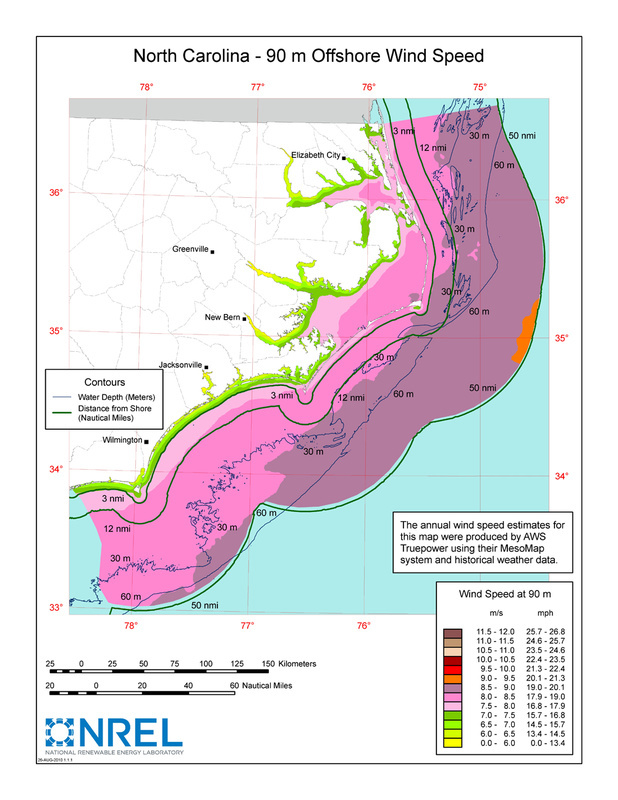US Department of Interior to auction off large area for the development of offshore wind power
On January 29, the Department of Interior (DOI) will auction off the largest area of federal waters in the nation for the development of offshore wind power. More than 742,000 acres, or over 1,160 square miles, will be offered for wind development off the coast of Massachusetts. While the U.S. is yet to install its first offshore wind turbine, across the Atlantic the offshore wind industry is booming. In the first six months of 2014, Europe connected 224 offshore wind turbines in 16 wind farms to its grid. Overall, Europe has over 2,000 offshore turbines.
The opening of these waters south of Martha’s Vineyard comes at an inauspicious moment for U.S. offshore wind as the long-sought nearby Cape Wind project is all but dead, according to the Boston Globe, after suffering a decade of “controversy and mismanagement.”
What could be the final blow for Cape Wind came earlier this month as two major power companies that had agreed to purchase the bulk of the wind power pulled out of their contracts after a critical financing and construction deadline for the $2.5 billion project was missed. In an editorial, the Globe states that Cape Wind’s “misfortunes should not block an industry that the nation and particularly Massachusetts — with few other sources of energy — needs for a truly renewable future.”
The DOI and the Bureau of Ocean Energy Management (BOEM) feel the same way. “This sale will triple the amount of federal offshore acreage available for commercial-scale wind energy projects, bringing Massachusetts to the forefront of our nation’s new energy frontier,” said Secretary of the Interior Sally Jewell in a statement announcing the competitive lease sale. As of earlier this month, 12 companies had been deemed qualified to participate in the auction.

It will be the BOEM’s fourth offshore wind auction and the largest in terms of square mileage and number of separate leases, which will be four. According to the Department of Energy, if fully developed, the area, known as the Massachusetts Wind Energy Area, could support up to five gigawatts of wind generation — 10 times what Cape Wind would be able to produce, and enough to power nearly 1.5 million homes.
For the last eight years, Massachusetts Governor Deval Patrick proved himself a reliable proponent of clean energy. Newly-elected Republican Governor Charlie Baker is untested, but has the support of the industry, if not the full faith. Baker and the state Legislature will be put to the test in the next six months regarding their commitment. In his energy platform, Baker says he “will pursue a balanced approach that includes natural gas, wind, solar, and hydroelectric generation,” while also keeping energy prices “truly affordable.”

Baker’s appointments to oversee his energy policy earlier this month gave environmental and clean energy advocates pause as they seemed to indicate he would prioritize low energy costs over phasing out coal and supporting clean energy. The team includes an “unsuccessful Republican candidate for Congress who campaigned against government regulations, a former lobbyist for the region’s fossil fuel industry, and a senior executive at one of the state’s largest power companies,” according to the Boston Globe.
“The administration is clearly putting the fox in charge of the chicken coop on energy policy,” said George Bachrach, president of the Environmental League of Massachusetts. “These are disappointing appointments that will likely represent the interests of the utilities and industries they regulate.”
At least one Massachusetts lawmaker has her attention turned fully towards offshore wind. Last week, Democratic representative Patricia Haddad, the third-ranking member of the House, introduced a bill that would require utilities in the state to solicit offshore wind energy.
With coal and oil power plants going offline and no nuclear plants under construction, the bill encourages the use of offshore wind as a way to meet the region’s energy needs. In a statement along with the bill, Haddad said that current onshore wind and hydro resources are not enough to meet the low-carbon demands of the state.
“There appear to be only two significant sources remaining: hydropower produced in a foreign country or offshore wind produced off the coast of Massachusetts,” her letter said. The bill also looks to increase the state’s natural gas pipeline capacity.
- Source:
- US Department of Interior
- Author:
- Edited by Trevor Sievert, Online Editorial Journalist / by Online Editorial
- Email:
- ts@windfair.net
- Link:
- w3.windfair.net/...
